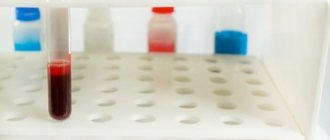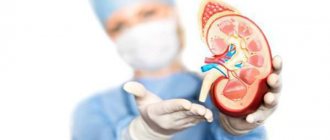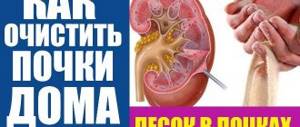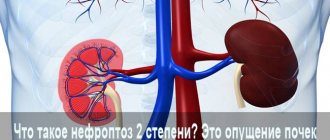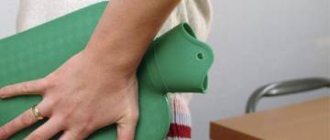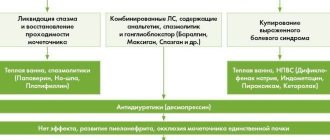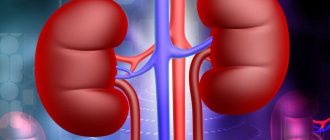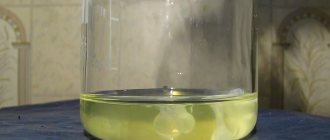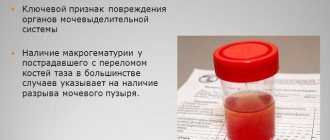Diet with protein in urine
There is no specially designed nutrition for the appearance of traces of protein as such. There are also no medications that can remove the protein. The treatment regimen and diet depend directly on the type of underlying disorder that led to proteinuria (increased protein in the urine). The diet when protein appears in a person’s urine is based on the basic rules of nutrition for kidney disease. Other nuances regarding the diet in each individual case are discussed with the attending physician.
How long it is necessary to adhere to dietary nutrition, what it includes and what it prohibits, depends on the underlying ailment, its degree and form. All the doctor’s prescriptions, as well as the implementation of his recommendations, will help in a short time to reduce the concentration of protein in the urine in case of kidney problems, and following a diet will keep the levels within the normal range.
But traces of protein in urine during pregnancy are dangerous for women and children. Treatment should be prescribed with caution, so nutrition will then be the only therapeutic method to suppress this symptom.
Doctors' recommendations
In addition to the mandatory rules, when following a diet with protein in the urine in pregnant women, you can rely on a few more recommendations:
- Any protein products consumed must first undergo heat treatment before serving - eggs are cooked hard-boiled, and fish and meat are fried or boiled for quite a long time. Milk must be boiled before consumption.
- The best meat option would be chicken as it contains less protein than red meat.
- Alcoholic drinks should be excluded from the diet during the diet, although it is better not to drink them at all during pregnancy.
- Meals should be fractional, and portions should be quite small - it is best to divide all food into 5 meals.
- Any salted, smoked or pickled foods are not allowed to be consumed during the diet. The best option would be to steam, stew or bake in the oven.
General rules
The basis of nutrition and prevention for protein in the urine, as with other manifestations associated with kidney function, is to reduce the load on the organs of the genitourinary system. In addition, it is equally important to limit or completely eliminate high protein foods from your diet. You need to avoid foods that can irritate your kidneys. Traces of protein often occur during inflammation, so it is important to focus your diet on foods with an anti-inflammatory effect.
When protein accumulates in the urine, it is important to reduce its intake from food and diversify the diet with foods rich in vitamins, fats and carbohydrates.
When traces of protein appear in the urine during pregnancy, it is important to enrich the menu with a variety of vegetables, fruits and berries. The level of vitamins in the body decreases during gestation, and it is important to replenish it in a timely manner.
Together with the food consumed, no more than 80 grams of protein per day should enter the body. Phosphorus and sodium salts, which put unnecessary strain on the kidneys, should also be limited. To reduce the damaging effect and get rid of kidney problems, it is important to monitor the calorie content of food and the volume of its consumption. When creating a menu, emphasis should also be placed on foods with sufficient calcium content.
Protein is necessary as it is an important component in the body. It participates in the construction of structures and catalyzes various processes. But it should be understood that after synthesis, waste remains from the protein. They are excreted in the form of urea and creatinine in the urine. This phenomenon is normal, but with kidney dysfunction, when the excretory and filtration work of the organ is impaired, these metabolic products accumulate and have a toxic effect.
When protein appears in the urine, adequate therapy is prescribed in combination with special nutrition. Treatment is aimed at the underlying disease, and the diet supports the kidneys. A low-protein diet for proteinuria is adjusted individually; the amount of acceptable protein in food is determined by the level of metabolic products in tests, namely creatinine.
Patients with kidney disorders are recommended to follow diet No. 7 and its variations: No. 7a and No. 7b.
The prefix A implies a minimum protein content. The goal of such a diet is to minimize the load on the kidneys and accelerate the elimination of metabolic products. But it also has a hypotensive and anti-inflammatory effect.
Table No. 7B is prescribed for chronic kidney diseases with severe azotemia. But the type of diet with the prefix B, on the contrary, implies replenishment of lost nitrogen-containing compounds. Dietary nutrition reduces swelling, improves kidney function and suppresses proteinuria, as well as hypercholesterolemia.
Diet for kidney disease, low protein diet 7 for kidney disease
In addition, the patient should moderate the consumption of foods that contain high amounts of fats and carbohydrates. You will need to eat small portions about 4-5 times a day. Meat and fish must first be boiled, then fried and stewed.
A person should consume more than 3,000 calories every day. The volume of fluid consumed is also limited to no more than one liter per 24 hours. This procedure will reduce the load on the kidneys, and recovery will be many times faster. The diet lasts for a week.
During this time, it is recommended to consume the following foods:
- Meat and fish that do not contain a lot of fat
- Bread in any form that does not contain salt,
- Vegetable soups. Can be prepared with the addition of various cereals and cereals,
- It is allowed to eat fermented milk products in small quantities,
- Boiled chicken eggs, but no more than 2 pieces per day. Also in the form of omelettes,
- Any vegetables
- Pasta, but without salt and seasonings,
- Tea, fruit drinks, compotes and decoctions from plants,
- Berries in any form, except watermelon.
During diet No. 7 you should not consume:
- Carbonated water and similar drinks
- Smoked products,
- Mushrooms in any form,
- Salted fish
- Garlic, radishes, pickled vegetables and onions,
- Alcohol, even in small quantities,
- Beans, peas and beans,
The diet must be prescribed by your doctor. You need to maintain a balanced diet for at least one week, but after this period it is also not recommended to consume contraindicated foods. If the kidneys have been susceptible to disease, it is advisable to follow the diet on an ongoing basis, otherwise it will cause complications and the return of the disease.
Protein-free diet for kidney disease
A diet for problems with the kidney area requires limiting the amount of protein entering the body. This procedure will help remove nitrogenous wastes, which are difficult to remove from the patient’s body.
A protein-free diet is used for various kidney pathologies. It helps patients cope with cystitis and urethritis of pronounced forms. Its essence is that the protein consumed is limited and does not exceed 50 grams daily.
This process must be controlled by the patient or the person caring for him. Limited nutrition should be observed for no more than 14 days, otherwise the patient’s condition will worsen, which will lead to complications and progression of the pathology.
If the kidney damage is minor and is in the early stages of development, this procedure is prohibited. It will be enough to do 1-2 fasting days a week, which will help remove toxic substances from the body.
There is another method called a low protein diet. It involves consuming foods that contain minimal amounts of this substance. In this case, there is no need to restrict food. It is enough to dilute the diet with other foods that are not rich in protein.
The procedure will help normalize kidney function, which will make the fight against pathologies more successful. It is worth noting that each diet must be agreed upon with the attending physician, otherwise the lack of a particular substance will affect the body, which will allow the disease to actively progress.
What foods should you eat if you have kidney disease?
The diet of a patient who suffers from kidney pathologies should be extensive and varied. It is important to compose it correctly so that a person receives all the necessary substances and vitamins. Nutrition for kidney disease is as follows:
Bread products. These include gray and white bread. It is allowed to eat buns and cookies that do not contain salt. People who suffer from diabetes should reconsider their diet and give up sweets.
For chronic kidney diseases, it is recommended to use decoctions, green tea, tinctures and fruit drinks. Each of them has healing properties that normalize kidney function and make the healing course more effective.
Patients who have problems with the kidney area are recommended to consume fermented milk products. This applies to milk, kefir and similar products. The fact is that milk contains bacteria that also favorably promote the functioning of the kidneys, restoring their functions.
Vegetarian soups and any vegetables except onions and garlic are also considered permitted foods for consumption. The microelements that are present in these products affect not only the kidneys, but also the body as a whole, filling it with necessary substances and vitamins.
The patient will need to consume dietary cereals and fruits on an ongoing basis. Dessert will be baked apples, which are also indicated for patients with kidney pathologies.
As a salad, the patient should consume a vinaigrette, which does not contain salt, seasoned with sour cream.
During the entire course of recovery, a person with kidney diseases consumes cottage cheese and similar dairy products.
What foods are best to avoid?
Sauces prepared with meat or fish. This also includes broths. Eating such products will contribute to the return of pain and discomfort.
A diet for kidney disease completely excludes fatty and fried foods from the diet. The use of fried meat in the daily diet will complicate digestion, causing urine to be excreted longer than usual, which will negatively affect treatment.
It is prohibited to add any hot spices or seasonings to cooked dishes. These products are strictly unacceptable for kidney treatment. They negatively affect the liver, which will also reduce the result of treatment.
Smoked products, pickled vegetables and pickles cannot be present on the table of a balanced diet for a patient. The products will affect the body as a whole, which will significantly affect the patient’s kidneys.
Squid, shrimp, mussels and other seafood are strictly prohibited for consumption. Excessive amounts of seafood in the diet will contribute to the development of complications.
Sausage is also excluded from the daily diet; if the patient continues to eat it, then these actions will cause an exacerbation of the pathology, which will require more effective treatment.
Chocolate, candy and similar sugar products are excluded or used in small quantities. You can get informative advice on this issue from the attending physician who prescribed the course of recovery.
Dill and green onions are not recommended for use by men. For women, the diet is stricter; they will need to give up parsley, broccoli and asparagus.
It is strictly forbidden to use legume products in food in any form. Some people believe that they are used with soups, but this is a misconception.
Low-protein foods also have an effect on the body in case of kidney pathologies, so they will also need to be excluded from the daily diet and preference should be given to dishes from the approved list.
It is worth noting that when the diet is completed, the above-described products are allowed to be consumed only in small quantities, as this will provoke the return of the disease, which will require repeated treatment.
What you can drink
First of all, the patient drinks plain water, preferably filtered independently or purchased in pharmacies. Fruit drinks will dilute the diet. Citrus juices can be used depending on what diet has been prescribed, so the patient should consult a doctor.
The patient is advised to constantly drink green tea and weak coffee. A person suffering from kidney pathologies can drink liquids in the form of compotes, jelly and the like.
If a person has been diagnosed with kidney stones, he should drink alkaline waters, which are sold in pharmacies, as often as possible. They have a beneficial effect on internal organs, which contributes to the rapid dissolution of stones.
You are allowed to drink milk, kefir and other fermented milk drinks. They are low protein foods. It is recommended to consume no more than 200 milliliters of dairy drinks daily.
There are special health cocktails, the recipe for which can be obtained from your doctor. They contain all the necessary components that normalize kidney function and return it to its original state.
Women should use chamomile infusions. Men are shown tinctures of fractional St. John's wort and similar plants.
Conclusion
Diet plays a special role in the fight against kidney pathologies. Compliance with all rules and recommendations will contribute to a speedy recovery. After a diagnosis is made, prohibited foods should be immediately abandoned and completely eliminated from the diet.
Do not self-medicate, but get advice from a doctor, because eliminating a certain product for no reason will have a detrimental effect on the patient’s health.
Eat a balanced diet and drink fluids properly. In this way, a person will get rid of kidney diseases many times faster, and the treatment will be painless and with maximum results.
If, after starting the diet, it is discovered that any changes occur in the body that cause discomfort, you will need to consult a doctor and reconsider your ways of dealing with the disease.
It is possible to return to a normal lifestyle through proper nutrition, so follow a diet and give up unhealthy foods. Take care of your health, because money cannot buy it.
Source: https://mfarma.ru/mochepolovaya-sistema/bolezni-pochek/dieta-pri-zabolevaniyah-pochek
Authorized Products
Special nutrition for kidney disease and protein in the urine is a rather strict menu. But there is a list of permitted products from which you can create a delicious and varied lunch or dinner. Their use is not only permitted, but also highly recommended.
Vegetables and fruits must be present on the menu. They are not only allowed, but also very beneficial for the body. They can be eaten either fresh or subjected to various heat treatments, except frying. For lovers of sweets, following a low-protein diet should not be difficult - it does not prohibit sweets. You can eat honey, various jams, preserves and add sugar to your food, but only within reason.
If protein is detected in the tests, it is allowed to include in the diet
- cereals and pasta;
- low-fat fish;
- bread and other baked goods;
- vegetable-based lean soups;
- dairy products.
Recommended drinks include freshly squeezed juices from vegetables or fruits, fruit drinks, tea with milk, as well as a decoction of rosehip, rowan or currant.
Meat is initially completely excluded from the diet and is only gradually introduced into the menu in small portions, but only low-fat dietary varieties.
The consumption of animal proteins is not allowed - they are replaced with plant proteins, but only after a urine test and clarification of the diagnosis.
Since salt is limited in the diet, dishes may seem tasteless. Non-spicy sauces will help improve their organoleptic properties, and prepared foods can also be seasoned with fresh herbs.
Product Lists
For convenience, we have divided products into two lists - recommended and undesirable for consumption.
Allowed
Can be included in the diet:
- Wheat bread, bran.
- Vegetable and dairy soups.
- Lean meat, fish, poultry.
- Eggs (boiled, in the form of a steam omelet).
- Vegetables and fruits – fresh or thermally processed.
- Butter, vegetable oil.
- Honey.
- Cereals with water and milk.
- Cottage cheese, cheese.
No salt is added to food during cooking.
Drinks allowed:
- black, green, herbal, fruit tea;
- milk, kefir, fermented baked milk, yogurt;
- still water;
- rosehip decoction;
- jelly, compotes.
You can also drink freshly squeezed juices - vegetable, fruit, berry. Dishes should be steamed, boiled, stewed without excess oil, or baked in the oven. They are best consumed fresh; Don't overeat.
Prohibited Products
Of course, there are a number of restrictions. Many products (mostly those that we love to eat in everyday life) are contraindicated. These include:
- Rich broths (meat, fish, poultry, mushrooms).
- Spicy seasonings.
- Marinades.
- Pickles.
- Sausage, sausages.
- Smoked meats.
- Canned food.
- Fast food.
- Processed cheese.
- Legumes.
- Mushrooms.
- Sorrel.
- Offal.
- Soy sauce, mayonnaise.
- Fatty meat, fish, poultry.
- Carbonated drinks.
The following products can be consumed in strictly limited quantities:
- bakery;
- chocolate, sweets;
- cocoa;
- sugar;
- sour cream;
- cream.
Drinking alcohol is strictly prohibited. It is not advisable to drink coffee or strong tea. Energy cocktails and juices with added sugar or salt are also prohibited.
Fully or partially limited products
The main goal of a diet for kidney disease is to reduce the load on them and eliminate foods that irritate the kidneys. Prohibited foods that increase protein and lead to other disorders of the urinary system include the following:
- salt;
- cocoa, chocolate and coffee;
- sparkling water;
- garlic;
- mushrooms;
- sorrel;
- canned food;
- pickles;
- meat, fatty fish;
- alcohol;
- pickled and hard cheeses;
- sausages;
- meat broths or soups.
You should refrain from pickles made from vegetables and fruits, and also eliminate hot herbs and spices as soon as the first sign of pathology appears.
Prohibited Products
In addition to the permitted products, on a diet with protein in the urine, there is also a list that contains those ingredients that pregnant women should never consume. These include:
- Varieties of fatty sea fish - salmon, mackerel, trout.
- Soups and broths made from mushrooms, meat or fish.
- Representatives of the legume family are beans, peas, soybeans, and lentils.
- The only vegetables that are not recommended for use are onions and garlic.
- Any canned meat and fish, as well as semi-finished products, should be absent from the diet. In addition, you should also not consume chocolate, cakes, candies, snacks, pickles and smoked foods.
- It is imperative to reduce the consumption of spices, especially hot seasonings like chili, mustard and a number of others. They irritate the body and can negatively affect the result.
Functions of protein in blood plasma
There are different types of protein in the blood:
- albumin – binding function;
- fibrinogen – participates in blood coagulation and clot formation;
- globulin is a multifunctional protein, one of the purposes of which is also to perform a binding function.
The levels of various proteins depend on many factors. On the one hand, factors such as heredity, genetic conditioning, and the presence of certain diseases, including chronic ones, have a significant influence on the generation and removal of proteins.
On the other hand, their levels and ratios are influenced by nutrition, lifestyle, ecology, the presence or absence of bad habits, etc.
What does high protein content in urine mean?
Elevated levels of protein in the urine (albuminuria, proteinuria) can be a consequence of a pathological and non-pathological (physiological) process.
Pathological causes
- Diseases and injuries of the kidneys (pyelonephritis, glomerulonephritis, nephrosis, urolithiasis, nephropathy during pregnancy, renal tuberculosis).
- Inflammation of the urinary organs (cystitis, urethritis).
- Pathologies of the reproductive system (prostatitis, vulvitis, vaginitis).
- Infectious and inflammatory diseases that occur with high fever (pneumonia, influenza, appendicitis, malaria).
- Allergic manifestations.
- Dramatic weight loss.
- Diseases of the endocrine system (obesity, diabetes).
- Toxic poisoning.
- Epilepsy.
- Heart failure and hypertension.
- Cancer processes (myeloma, leukemia, kidney and bladder tumors).
Non-pathological factor
Proteinuria may be temporary and physiological in nature, caused by certain factors rather than pathology. In such cases, over time, the amount of protein will approach normal values:
- After intense physical activity or walking (orthostatic proteinuria).
- After heavy sweating.
- In underdeveloped children 7-15 years of age.
- After hypothermia, stress, drinking alcoholic beverages, unhealthy diet (sweets, pickles, marinades).
- Pregnancy in the last trimester.
Tips on how to lower protein in the blood when its level is elevated
They are expressed not only externally. In the early stages, only internal changes in the level of certain substances in the body, including total protein, are observed. But during pregnancy, this indicator decreases slightly as blood volume increases.
In cases where the indicator is significantly exceeded and is more than the norm, the reason for such deviations should be found out. Timely identification of the causes of this condition will eliminate the development of complications and a number of fetal pathologies. If the level of total protein in the blood is elevated, you should visit a doctor who will prescribe additional studies and instrumental diagnostic methods to identify the cause and prescribe treatment.
It is important for patients to know that self-medication and the use of traditional medicine can cause complications. To normalize the total protein level, patients are recommended to follow a special diet.
Diet features
Loss of protein in urine requires adequate compensation:
- with food;
- with drinks;
- with drugs administered intravenously to patients.
Table No. 7b (it is also classified as the Pevzner diet) is intended primarily for patients with kidney pathologies, but is also suitable for other diseases accompanied by proteinuria.
general characteristics
The calorie content of the diet is calculated taking into account the individual needs of a person (age, gender, physical activity, type of employment), but the recommended value corresponds to 2900 kcal per day.
The table contains the basic requirements for the power supply:
| Menu Component | How much is needed per day, g | Notes |
| Proteins | 120 (or individually) | Half of this norm should be provided by animal proteins |
| Fats | 75 | About 25 g – vegetable origin |
| Carbohydrates | 450 | Refined – 50 |
| Salt | 2-3 | Should not be added separately to food products |
| Liquid | 800 ml | This volume includes water and food with a high content of it (for example, soups, jelly), any drinks |
It is necessary to limit the use of:
- Extractive substances (these are, first of all, meat and fish broths).
- Liquid (including water, tea).
- Salt – as indicated in the table, no more than 2-3 g/day.
General urine analysis
Why do a general urine test?
Urine or urine is one of the types of biological fluids secreted by the body. A change in its indicators during a general analysis, in combination with other clinical studies, may indicate a pathological process and helps the doctor in making the correct diagnosis:
- diseases of the kidneys and excretory organs (inflammatory, congestive, renal failure);
- endocrine pathology (all types of diabetes);
- heart and vascular diseases;
- organs of the digestive tract (cholecystitis, cholangitis, pancreatitis, cholelithiasis);
- cancer diseases.
The method is safe, painless, and accessible.
Parameters of general urine analysis
Urine examination is carried out according to the following groups of indicators:
- Organoleptics: quantity, presence of foam, shade, smell, turbidity.
- Biochemistry: protein, bilirubin, glucose (sugar), ketone bodies.
- Physico-chemistry: density, acidity (pH).
- Microbiology: bacteria, fungi, leukocytes and red blood cells in the field of view, cylinders, sediment, salts.
Norm of protein in urine for adults (men, women, pregnant women)
Urine analysis for protein is one of the important diagnostic criteria for the pathological process, especially the kidneys. During normal functioning of the body, there is no protein in the urine or its content is insignificant (up to 0.033 g/l) - traces of protein. The protein norm is practically independent of gender.
Other proven methods
In addition to diet, there are other ways to adjust protein levels.
Folk remedies
The following can be used as folk remedies to reduce the concentration of protein in the blood:
- consumption of cranberry juice (lingonberries, cherries, red currants are also suitable);
- consumption of infusions of birch buds, parsley, corn cob;
- consumption of fir decoctions, pumpkin seeds;
- consumption of bee products.
Drug treatment
The following pharmaceuticals are used as methods of drug therapy:
- intended to lower blood pressure;
- inhibitors in general;
- immunosuppressants;
- drugs to correct sugar levels (for diabetes).
